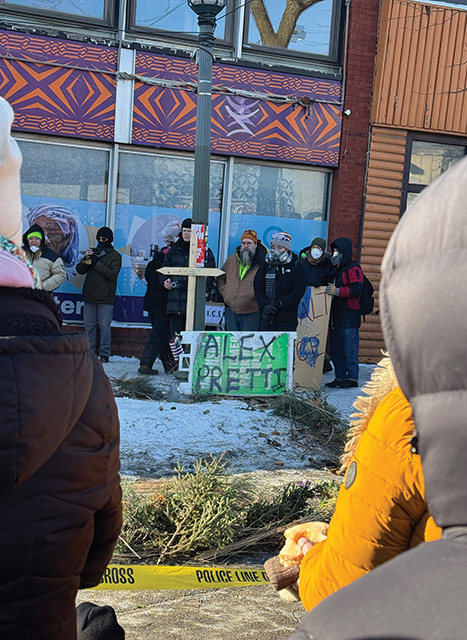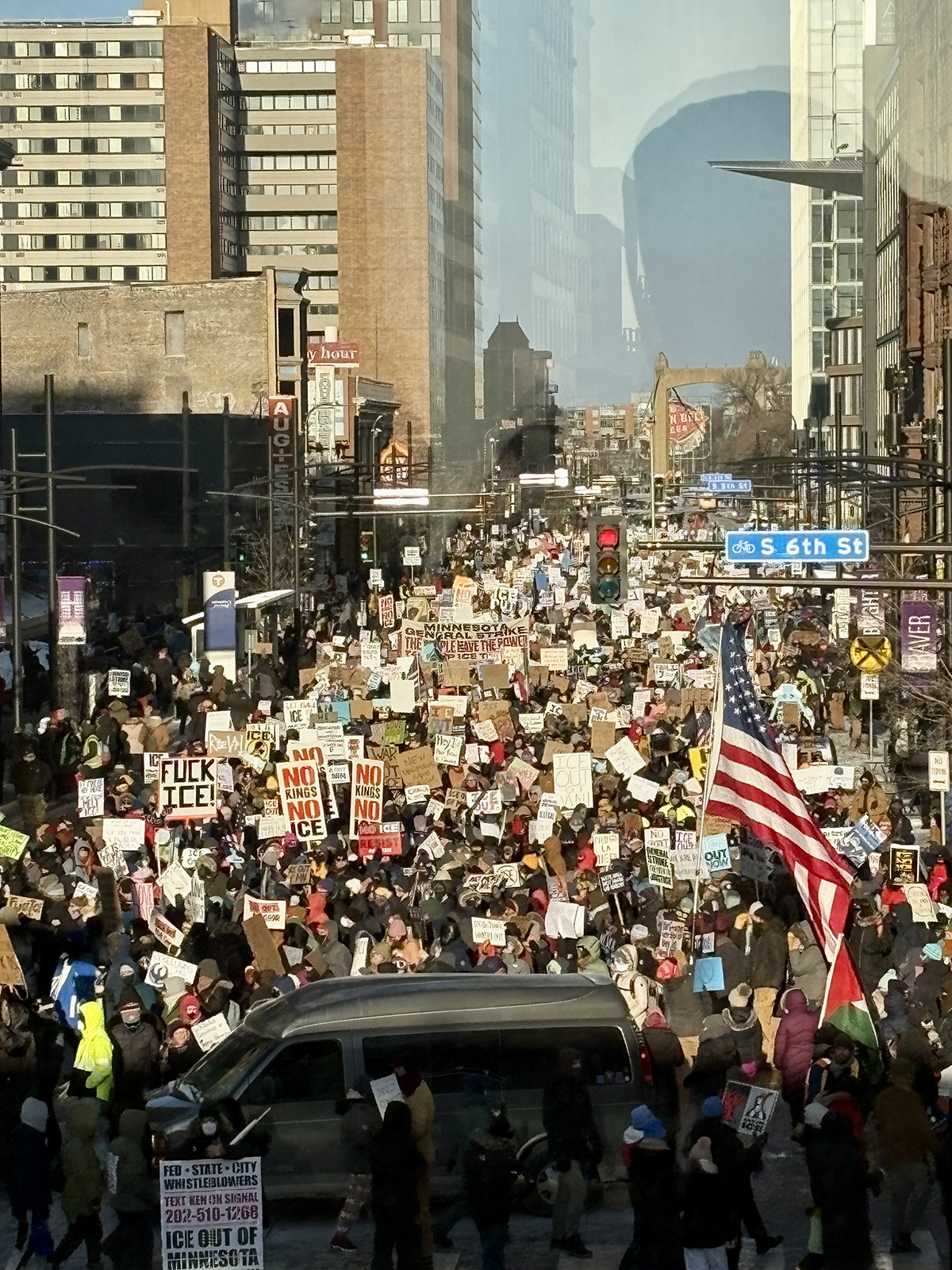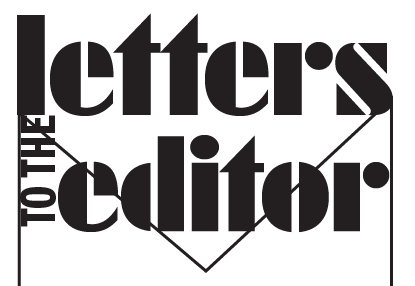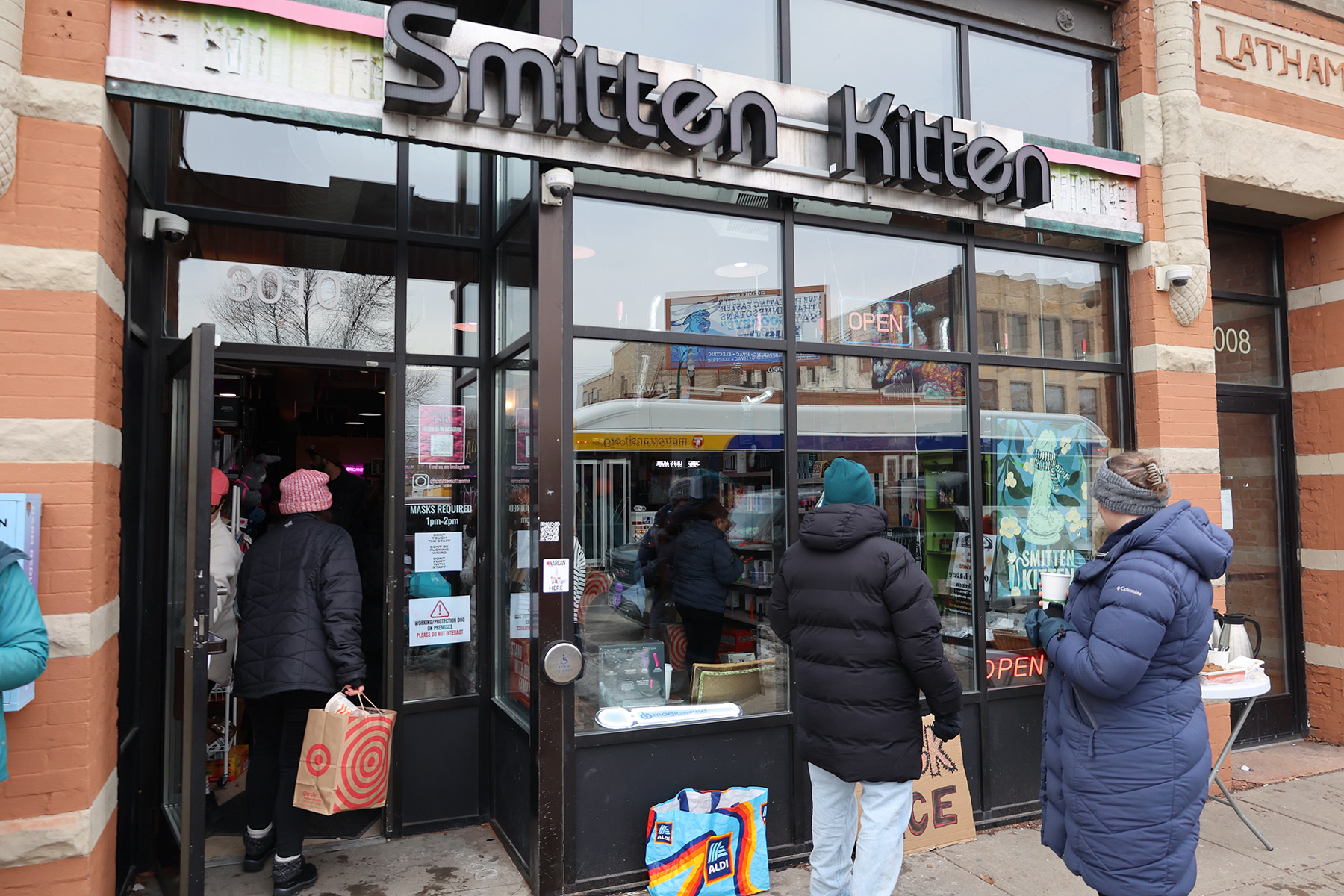Terry White is a regular contributor. He is also the author of the Better Minneapolis newsletter and podcast. He lives in Field.
The Minnesota DFL Constitution, Bylaws and Rules Committee announced on August 21 that they had revoked State Senator Omar Fateh’s Minneapolis DFL endorsement.
Fateh won the endorsement July 19 at the Minneapolis DFL City Convention in a second round of balloting conducted with badge voting. But the committee ruled that the convention’s first round electronic voting process “was substantially flawed” resulting in an improper outcome that left DeWayne Davis off the second round of voting.
The committee, known as the CBRC, includes 30 voting members: two from each of Minnesota’s eight congressional districts, 11 from the State Central Committee, two from the State Executive Committee, and the state Party Chair, Richard Carlbom. For this vote, two members recused themselves, leaving 28 votes cast. The final tally has not been released.
Party officials said that about 100 challenges to the convention were filed, including one from Mayor Jacob Frey’s reelection campaign. During an August 19 hearing, challengers and respondents presented arguments to the committee. The challengers were tied to moderate, left-center candidates, while those facing challenges were aligned with the more left-leaning Democratic Socialists of America faction of the DFL.
According to a draft DFL press release, the committee found “clear and convincing evidence” that the first round of convention votes contained a substantial undercount. That error eliminated mayoral candidate DeWayne Davis from advancing to the second round, the committee said. Officials determined that not all eligible delegates were counted, rendering the results invalid.
Findings
The committee reviewed challenges stemming from a discrepancy between the number of checked-in delegates and alternates, 1,028, and the official vote tally of 577. Party rules allowed 800 delegates to vote. The final voting pool was determined to be 754, of which 176 votes — about 23 percent — went uncounted.
The committee concluded that the ballot results were unreliable and should have been disregarded at the convention. Because they were not, officials ruled that the subsequent ballot was invalid.
Endorsements for the Minneapolis Park and Recreation Board were allowed to stand. According to the committee, that vote was conducted by a show of delegate badges rather than electronically and involved only one round of voting. Some challengers, however, argued that the use of badges made it difficult to confirm whether all who voted were credentialed delegates. The late hour of the 13-hour convention limited the ability to validate those votes.
Other findings by the committee: the entire Ward 5 credential book was lost; the master check-in sheet at registration was not properly secured resulting in the opportunity to replace, delete or alter ballot ID numbers; non-members of the credentials committee accessed the unsecured digital record of credentials; and upgrading of alternates was flawed resulting in some not receiving their blue voting badges.
Remedies
In addition to revoking Fateh’s endorsement, the committee barred the Minneapolis DFL from endorsing a mayoral candidate in 2025. The local party was also placed on two years’ probation under the supervision of the DFL State Executive Committee. As part of that probation, the Minneapolis DFL must submit a best practices plan and a compliance plan.
Impact
The decision gives all Minneapolis mayoral candidates who sought endorsement access to the party’s voter database, known as VAN. Normally, access is reserved for endorsed candidates unless no endorsement is made.
Political observers note that DFL endorsements in Minneapolis often carry significant weight with voters,and most endorsedcandidates go on to win their races. With no endorsement in the 2025 mayoral contest, voters will rank their top three choices from among 15 candidates without direction from the city party.
Fateh has the option to appeal the ruling. In a statement, he said he was “disappointed and angered to see 28 party insiders revoke the endorsement and overturn the votes of hundreds of Minneapolis residents.”
Several elected officials issued a joint statement condemning the action, including U.S. Rep. Ilhan Omar, state Sen. Zaynab Mohamed (Fateh’s sister-in-law), Hennepin County Commissioners Irene Fernando, Marion Greene and Angela Conley, and Minneapolis City Council Members Elliott Payne, Aisha Chughtai, Jamal Osman, Jason Chavez and Aurin Chowdhury.
Mayor Jacob Frey’s campaign praised the ruling. “I am glad that this inaccurate and obviously flawed process was set aside,” his campaign said in a statement. “The outcome of this election now rests where it should — with all the people of Minneapolis.”
Analysis: Rethinking Minneapolis’ Endorsement Process
The Minneapolis DFL’s unprecedented loss of authority in this year’s mayoral race has renewed debate over whether the caucus and convention system should continue.
Critics argue that the process is flawed and unnecessary. City elections are nonpartisan by law and already use ranked-choice voting, reducing the influence of party endorsements. The Minneapolis DFL, a volunteer-run organization, has struggled to manage caucuses and conventions, often leading to disputes, appeals and lengthy challenges.
Some observers suggest alternatives. One proposal would allow any registered DFL candidate who collects at least 250 voter signatures to access the VAN, a resource typically reserved for endorsed candidates. Others argue the party should focus on educating voters about all candidates rather than steering support to a single contender.
Endorsements also carry less weight in practice, critics say. Many DFL elected officials endorse candidates regardless of the local party’s decision, leaving voters to sort throughendorsementsfromunions, advocacy groups and individuals.
Some reform advocates say that eliminatinglocalpartyendorsements, combined with ranked-choice voting and nonpartisan ballots, could shift attention away from convention maneuvering and toward city governance.
The controversy has already drawn national attention, with the New York Times reporting on the DFL committee’s decision. Party leaders emphasized that the electronic system used in the city convention will not be used in the November general election, which as usual will be conducted on paper ballots.
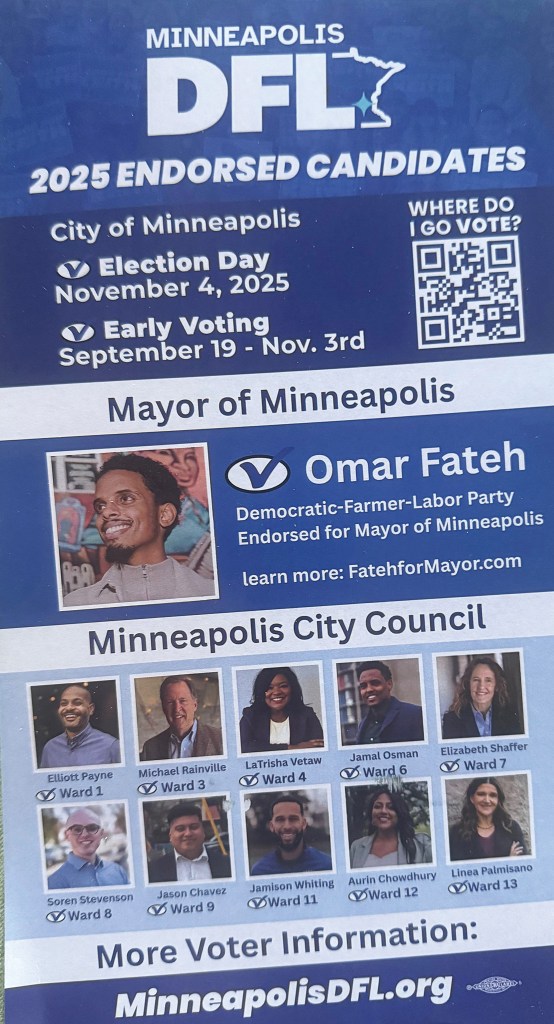
ENDORSEMENT REVOKED
A Minneapolis DFL flyer proclaiming Omar Fatah’s endorsement was sent to likely Democratic voters even though his endorsement had already been officially revoked. Critics allege the mailing was done deliberately, noting that this type of campaign literature is not typically distributed this early but rather closer to the election. (Images: DFL)


